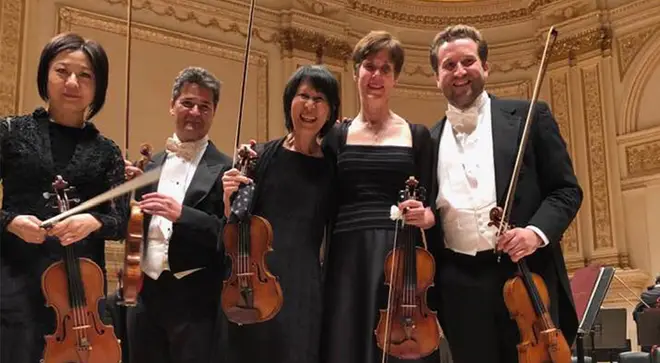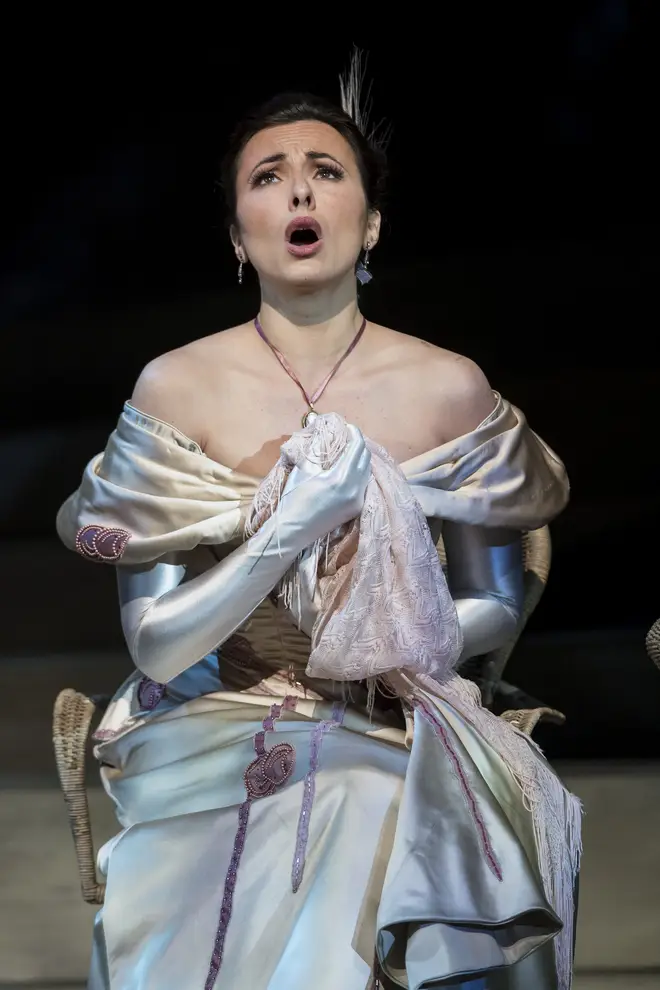On Air Now
Classic FM Breakfast with Tim Lihoreau 7am - 9am
19 October 2020, 17:24 | Updated: 19 October 2020, 19:40

New York’s iconic opera house has been silent since March. And after six months with no pay, one third of the Met Orchestra’s musicians can’t afford to live in the city anymore.
The New York Met’s world-renowned orchestra is in crisis, as a stark statement reveals that a third of its musicians have been forced to move outside of New York City to survive the coronavirus pandemic financially.
Since the spring, the players have been left without pay. “[We] are the only world-class orchestra in America furloughed with no pay since 1 April,” they claim on Facebook.
Many of the musicians in question have families to support, including principal flute Chelsea Knox. She tells Classic FM: “I gave birth during the final performance at The Met on 11 March, 2020. I had only just received tenure for my job in the spring of 2019 and for me the Met Orchestra is my dream job. I love playing opera and I am in constant awe of the talent of my colleagues. It felt like I had the career security to finally start a family and plan a future in New York City.
“My husband, who is also a musician, and I were getting ready to purchase our first home, but were suddenly faced with leaving our apartment and moving in with my parents to sort out our plan going forward as a family. We’re now renting a small place outside of the city and while we are lucky to have such a supportive family it is still difficult to suddenly be in this position.
“Emotionally the loss of identity has been as challenging as the loss of income. I expected new motherhood to be life altering, but being isolated with a baby and with no performances scheduled for the next year it has been hard to find balance. I’m not sure what my future as a musician looks like right now.”
The orchestra pins its members’ financial difficulties on “a lack of economic compensation from the Metropolitan Opera and the lack of economic support from the Federal Government”.
Read more: Met Opera closure leaves ‘devastated’ musicians without pay >

Met Orchestra musicians play together for first time since lockdown began
When the Met announced in March it would be cancelling its entire season, it also delivered the crushing news that its orchestra and chorus would not be paid. General manager Peter Gelb waived his salary, telling the Met’s unions the opera house was facing “one of the biggest financial challenges in its 131-year history”.
In September, the opera house cancelled its entire 2020/21 season. Now, musicians face being unsalaried for over a year.
While the house will remain closed until September 2021, it has continued to stream complete productions from its extensive archives for free every night of the week. The Met Stars Live in Concert pay-per-view series has also been ongoing, with soprano Diana Damrau and tenor Joseph Calleja singing from the Royal Palace of Caserta, Italy, this Saturday.
The orchestra previously said it was “devastated” by its lack of employment during closure. Their Facebook statement adds: “The Met’s global reputation and the cultural landscape of New York City would be devastated by the loss of artists of this calibre. The social, educational, and economic impact these musicians have on their communities is immeasurable.”
The Met said it would be back with a bang in 2021, opening with Terence Blanchard’s Fire Shut Up in My Bones – the first opera by an African American composer to be performed at the Met.

During this period of zero pay, the orchestra has been working with Princeton University and the University of Montpellier, in France, on a new study of airflow in trained opera singers.
Scientists and engineers have so far worked with mezzo soprano and Met soloist, Isabel Leonard, recording her singing with a high-speed infra-red camera. They tracked exhaled CO2 and measured her expiratory flow rate over time, during moments of breathing and singing (watch below).
With Leonard, they found the airflow when singing was constant – but when breathing it was more erratic, producing larger spikes in airflow. The study concluded from this that “professional opera singers are experts in breath efficiency”.
As well as trying to prove they can get back to work safely, it’s part of an effort from the orchestra to challenge the “superspreader” label associated with live singing amid the coronavirus pandemic. They have replicated the experiment with opera star Angel Blue, and again with both singers wearing a mask, results of which are to be announced.
Producer and project manager for the study, Elizabeth Bowman, said: “This is the first reveal in this study on air flows of voices and instruments. It’s imperative that we understand the direction and distance of air flows from the instruments and the singers (different voice types and languages sung) in order to come up with effective ventilation strategies.”
The MET Orchestra / Princeton University Study suggests surprising findings about #airflow in *trained* #opera singers. ...
Posted by MET Orchestra Musicians on Friday, 16 October 2020
The orchestra added in its statement: “While Metropolitan Opera management chose not to participate in this work, the orchestra felt it was imperative to pursue the study due to the vast quantity of unknowns in this new COVID-19 reality and the need to focus on finding informed guidelines to form a healthy performing environment (whether that includes an audience or not and whether that means streaming or live).”
So far, the science suggests singing does not produce substantially more droplets and aerosols than talking at a similar volume – and some live singing has been happening again, with rigorous testing in place for performers, and either limited audience numbers or no live audience at all.
But there is still legitimate concern about singing in large numbers – like in a choir – following rehearsals in Washington and Spain after which the majority of singers were infected with COVID-19.
Read more: Choir practice in Spain transmits coronavirus to 30 out of 41 members >
Classic FM has contacted the Met Opera for comment.